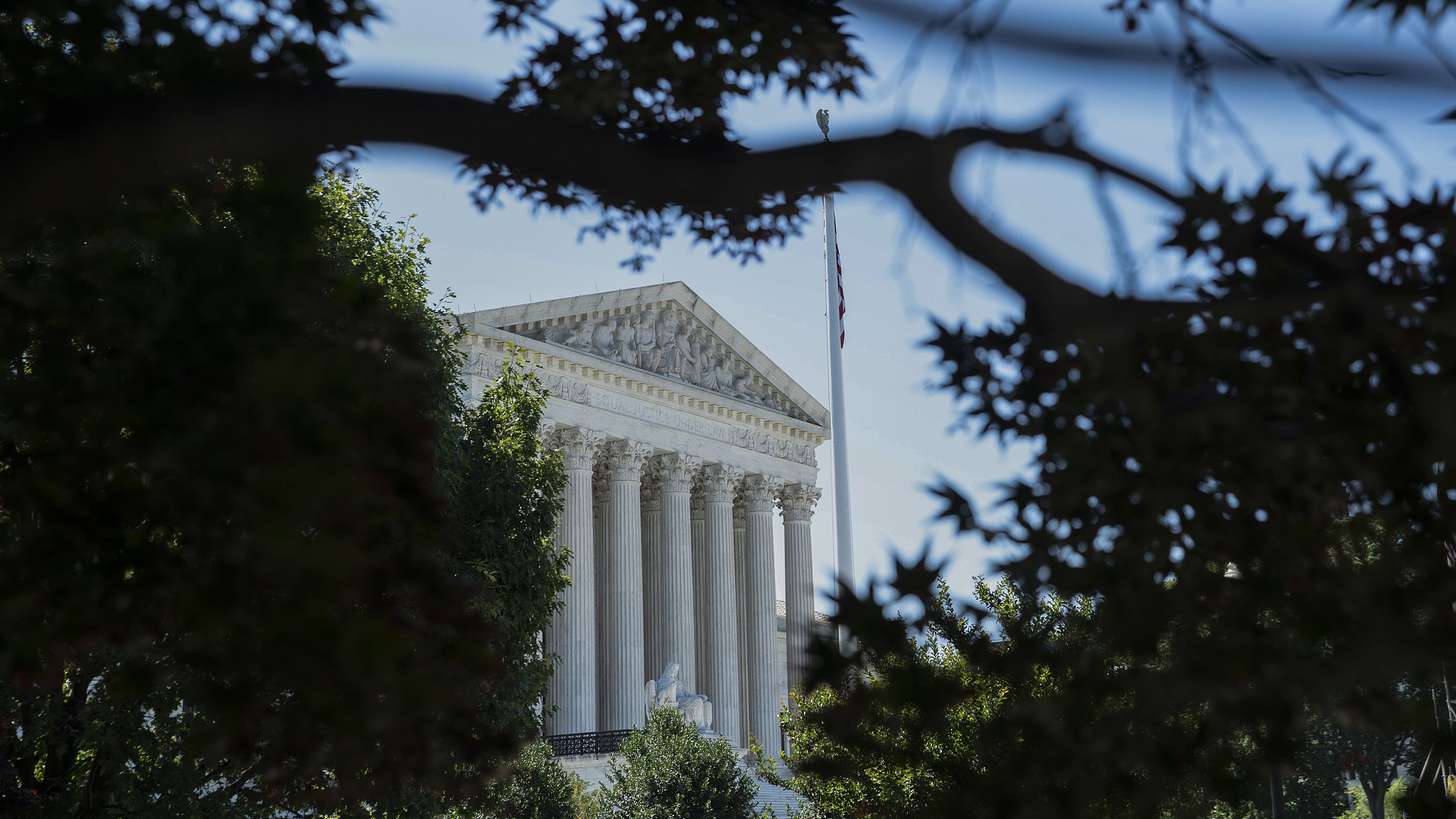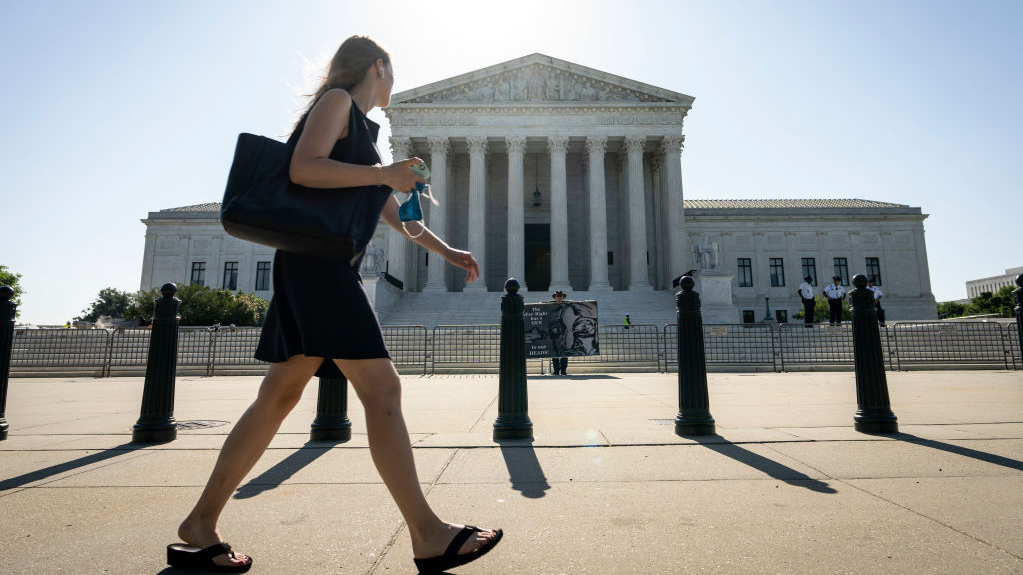
The U.S. Supreme Court in Washington, D.C., U.S., June 17, 2021. /VCG
The U.S. Supreme Court in Washington, D.C., U.S., June 17, 2021. /VCG
Editor's note: Bradley Blankenship is a Prague-based American journalist, political analyst and freelance reporter. The article reflects the author's opinions and not necessarily the views of CGTN.
The Supreme Court of the United States (SCOTUS) on Thursday issued a series of decisions that seriously threaten the foundations of so-called American democracy.
Along ideological lines, in a series of 6-3 decisions, SCOTUS struck down a California disclosure law that may open the floodgates to more "dark money" in politics and narrowed the only remaining provision of the 1965 Voting Rights Act, a key part of the Civil Rights Movement's legacy that prohibits racial discrimination in voting.
At issue in the first case was a California law that required charities and nonprofits raising money in the state to disclose the names and addresses of all donors who gave more than $5,000 or two percent of the organization's total donations.
The law was meant to prevent fraud and self-dealing but had clear political undertones for non-profit organizations that engage in political activity, such as the conservatives groups that brought the case to the Court, the notorious Americans for Prosperity Foundation and the Thomas More Law Center.
According to Chief Justice John Roberts on behalf of SCOTUS, California's "blanket demand" for that information "is facially unconstitutional" since it would be an attack on rich donors' freedom of speech.
"When it comes to the freedom of association, the protections of the First Amendment are triggered not only by actual restrictions on an individual's ability to join with others to further shared goals. The risk of a chilling effect on association is enough," he wrote.
This posturing by the Court is no surprise since the Court has maintained since the landmark Citizens United v. FEC decision in 2010 that independent contributions for political campaigns (donations to political organizations not directly associated with a campaign but that act on behalf of one) are protected by the free speech clause of the First Amendment of the constitution.
In a nutshell, SCOTUS has made clear yet again that money equals speech. That has serious consequences for the accessibility of so-called American democracy since if money equals speech then more money obviously equals more speech, e.g., a bigger platform, which means that the wealthy have a bigger sway in politics than working-class people.

A view of the U.S. Supreme Court, Washington, DC., June 28, 2021. /Getty
A view of the U.S. Supreme Court, Washington, DC., June 28, 2021. /Getty
Of course, study after study on this particular issue of so-called American democracy demonstrates that this is clearly the case.
The second case decided on Thursday dealt with an Arizona law that prohibited so-called "ballot harvesting," e.g., the collection of absentee ballots by anyone other than a family member or caregiver, and counting votes cast in the wrong precinct.
Because of transportation accessibility issues in Arizona (and no doubt every other part of the country with similar legislation), this law will result in minorities like Black Americans, Native Americans and others having their voting rights virtually stripped.
Arizona Republicans and the national party have argued that both laws are required to prevent fraud; that is, the kind of fraud they believe was committed in the 2020 presidential election. However, the Ninth Circuit Court of Appeals ruled that there was no record of fraud in Arizona during the election, in addition to the fact that there is clear evidence that these two laws would strip minorities of their voting rights.
The court noted specifically, for example, that the Navajo Nation, an area roughly the size of the State of West Virginia, needs vote collectors since there are so few post offices and postal routes.
Both of these decisions by SCOTUS highlight how illegitimate the Court itself actually is at this point. It is probably one of the biggest perplexities of so-called American democracy that the institution that issued these decisions is an unelected group of justices with lifetime tenure.
On top of this, it was the justices appointed by former President Donald Trump – who was just voted out of office in 2020 – that were key votes in these decisions. It means that even if voters decide against a president, still their power can remain after leaving office thanks to their federal judge appointments.
Though idealized as a non-partisan branch of government that stands outside of the legislative and executive branches, the judiciary is marred with political controversy much like the other branches because of how it is composed.
This is evident, again, by the fact that the Court's votes on these decisions were along strictly partisan lines, i.e. justices appointed by Democratic presidents dissented against the Court while those appointed by Republicans agreed with the Court.
As the U.S. works hard to boost a "democracy" versus "autocracy" narrative around the globe, its own so-called democracy at home is in clear crisis as minorities stand to lose their hard-fought voting rights, the wealthy tighten their grip on power and an unelected judiciary acts against the will of voters.
(If you want to contribute and have specific expertise, please contact us at opinions@cgtn.com.)

